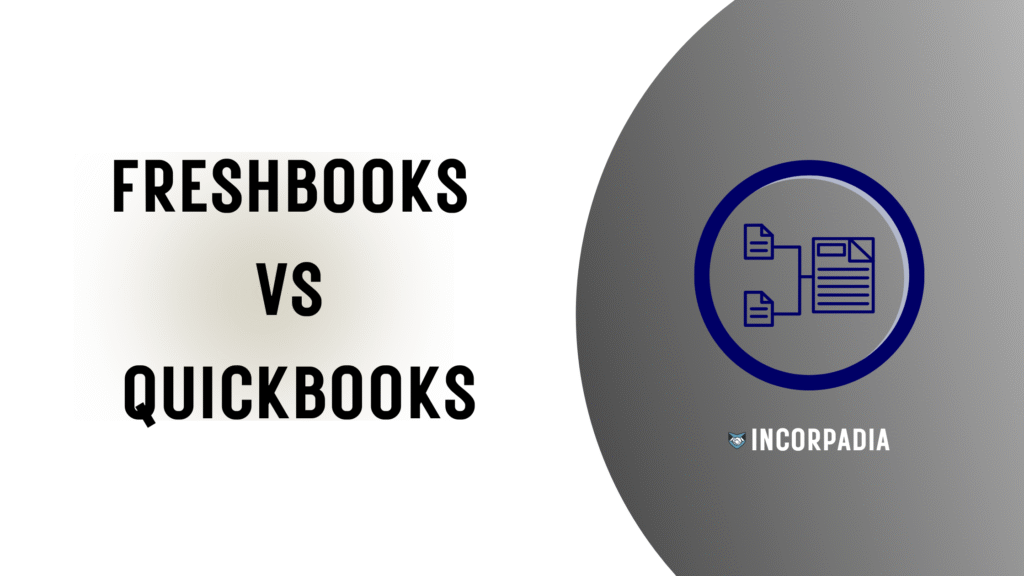Starting a business can be both an exciting and challenging journey. Whether you’re launching a tech startup in Nashville, a retail shop in Knoxville, or a restaurant in Memphis, Tennessee offers a variety of opportunities for entrepreneurs. With a supportive business environment, a lower tax burden, and access to various resources, Tennessee can be an excellent place to turn your business idea into a reality. In this guide, we’ll walk you through the essential steps you need to take to start a business in Tennessee.
Step 1: Create a Business Plan
Before diving into the legal and administrative steps, it’s important to start with a clear vision of what you want your business to achieve. A business plan is your roadmap and will guide you throughout the entire process of building your business. Your business plan should cover several key aspects of your business:
1.1 Executive Summary
This is a brief overview of your business, including your business name, the product or service you plan to offer, and the target market. Think of it as an elevator pitch—a concise, compelling explanation of your business.
1.2 Market Research
Conduct thorough research to understand your industry, your competition, and your target audience. Identify potential customers, assess demand for your product or service, and analyze what makes your business stand out. Understanding your market will help you make informed decisions and increase your chances of success.
1.3 Marketing and Sales Strategy
How will you attract and retain customers? Your business plan should outline the marketing strategies you plan to use, such as digital marketing, print ads, word-of-mouth, or special promotions. It should also cover your sales tactics, whether you’re using an online store, a physical location, or a direct sales approach.
1.4 Financial Plan
This section should outline your startup costs, expected revenue, and financial projections for the next few years. It’s crucial to know how much money you need to start and operate your business. Include details on funding sources, whether personal savings, loans, or investors.
1.5 Operations Plan
Describe the logistics of how your business will operate on a day-to-day basis. This includes details on locations, facilities, suppliers, equipment, and employee roles (if applicable). It’s also essential to plan for any software or systems you’ll need, such as accounting tools or customer management systems.
Having a comprehensive business plan is crucial not only for your own guidance but also if you plan to seek funding from investors or lenders. It shows that you’ve done your homework and have a clear path to success.
Step 2: Choose a Business Entity in Tennessee
One of the first legal decisions you’ll need to make is which type of business entity to choose. Your business entity affects your liability, taxes, and other important aspects of your operations. The most common business structures in Tennessee include:
2.1 Sole Proprietorship
A sole proprietorship is the simplest business structure. It requires little paperwork, and you are the sole owner of the business. However, the major downside is that you are personally liable for all debts and obligations of the business. If your business faces financial difficulties, your personal assets could be at risk.
2.2 Partnership
If you plan to start your business with one or more partners, a partnership might be right for you. There are two main types of partnerships in Tennessee:
- General Partnership: All partners share equal responsibility for the business’s operations and liabilities.
- Limited Partnership (LP): At least one partner is a general partner (with full liability), while others are limited partners (with liability limited to their investment).
2.3 Limited Liability Company (LLC)
An LLC is one of the most popular business structures in Tennessee. It provides liability protection for owners (members), meaning your personal assets are shielded from business debts or lawsuits. LLCs also offer flexibility in taxation, as you can choose to be taxed as a sole proprietor, partnership, or corporation.
2.4 Corporation
If you are planning to scale your business significantly, a corporation might be the best option. A corporation is a separate legal entity from its owners, which means you get the strongest protection against personal liability. However, corporations have more complex rules and regulations, and you’ll be subject to double taxation (the corporation pays taxes on its income, and shareholders pay taxes on dividends).
When choosing a business entity, you should consult a legal professional to ensure you select the one that best aligns with your goals, financial situation, and long-term plans.
Step 3: Determine Your Business Costs
Understanding your costs is critical for establishing a budget and ensuring the long-term financial health of your business. Here are the primary costs you’ll need to account for:
3.1 Startup Costs
These are the one-time expenses associated with starting your business. This might include things like:
- Equipment and supplies
- Business location or lease
- Business registration fees
- Marketing and advertising expenses
- Professional fees (e.g., attorney, accountant)
3.2 Ongoing Operating Costs
Operating costs are the day-to-day expenses that keep your business running. These include rent, utilities, payroll, insurance, inventory, and more. Make sure to track these carefully to maintain profitability.
3.3 Contingency Fund
It’s always wise to have a contingency fund to cover unexpected expenses. Ideally, this should cover at least three to six months of operating costs.
Understanding your costs will help you ensure that your business is financially viable and that you have enough capital to get started and stay operational.
Step 4: Register Your Business in Tennessee
Once you’ve selected a business entity, it’s time to legally register your business with the state. Here’s what you need to do:
4.1 Choose a Business Name
Your business name is an important part of your branding and identity. In Tennessee, your business name must be unique and not already in use by another company. You can check name availability through the Tennessee Secretary of State’s business database.
4.2 Register Your Business Entity
To form an LLC, corporation, or limited partnership in Tennessee, you’ll need to file with the Secretary of State. This involves submitting the necessary formation documents, such as Articles of Organization for an LLC or Articles of Incorporation for a corporation.
For LLCs and corporations, you’ll also need to appoint a registered agent. A registered agent is a person or business that will receive legal documents on behalf of your company.
4.3 Apply for an EIN
An Employer Identification Number (EIN), also known as a Federal Tax ID, is required for most businesses. It’s used to identify your business for tax purposes. You can obtain an EIN through the IRS at no cost.
Step 5: Apply for Business Licenses and Permits
In Tennessee, businesses are often required to obtain licenses and permits. The exact requirements depend on your business type, location, and industry. For instance, businesses in the construction, restaurant, and healthcare industries typically need additional licenses.
You should contact the Tennessee Department of Revenue and your local city or county government to find out what licenses and permits you need. Failure to obtain the necessary licenses can result in fines or even the closure of your business.
Step 6: Set Up a Business Bank Account
To keep your business finances separate from your personal finances, it’s crucial to open a business bank account. This also helps with maintaining accurate records for tax purposes. You’ll need your EIN, business formation documents, and identification to open the account.
Step 7: Fund Your Business
You may need outside funding to cover your startup and operating costs. Here are some common funding options:
7.1 Personal Savings
Many small business owners start by using their personal savings to fund their business. This is a common option for sole proprietors or those just getting started.
7.2 Loans
You can apply for a small business loan through a bank or financial institution. Tennessee also has several programs aimed at helping new businesses, such as low-interest loans or grants.
7.3 Investors
If you’re looking to scale your business quickly, you may want to attract investors. Investors can provide capital in exchange for equity in the business, allowing you to grow faster without taking on debt.
Step 8: Market Your Business
Now that you’ve got your business set up, it’s time to start promoting it. Marketing is critical to attracting customers and building your brand. Here are some strategies to consider:
8.1 Digital Marketing
Most businesses today rely on online marketing. You can set up a website, create social media profiles, and use search engine optimization (SEO) to drive traffic to your business. Consider paid ads or email marketing to increase your visibility.
8.2 Local Advertising
If you’re running a local business, make sure to tap into community advertising. Consider local newspapers, radio stations, and community events to spread the word about your business.
8.3 Networking
Building relationships with other local business owners, suppliers, and potential customers is a great way to promote your business. Attend networking events and engage with your local community to build trust and visibility.
Important Information
Do You Need Business Insurance?
While business insurance is not always required by law in Tennessee, it’s a good idea to protect yourself from potential risks. Types of insurance you may need include:
- General Liability Insurance: Covers accidents, injuries, and legal claims.
- Property Insurance: Covers your business assets, such as equipment and inventory.
- Workers’ Compensation: Required if you have employees.
What Is the Most Profitable Type of Business?
The profitability of your business depends on a variety of factors, including the industry, location, and your business skills. However, some of the most profitable industries in Tennessee include healthcare, real estate, and tourism. It’s important to conduct market research to understand demand and competition in your area.
FAQs
How long does it take to start a business in Tennessee?
Starting a business in Tennessee can take anywhere from a few weeks to a couple of months, depending on the complexity of your business and the speed at which you complete the required steps.
Can I run my business from home in Tennessee?
Yes, you can operate a home-based business in Tennessee. However, you may still need to register your business and apply for any necessary permits.
Are there any tax incentives for businesses in Tennessee?
Tennessee offers several incentives for small businesses, including tax credits and low-interest loans. Be sure to explore these resources to take advantage of available opportunities.







